Table of Contents
Introduction
In the fast-paced world of software development, efficient project management is crucial. This is where project management tools come into play. These tools help streamline workflows, enhance collaboration, and ensure timely delivery of projects. Whether you’re a small startup or a large enterprise, choosing the right project management tool can make a significant difference in your team’s productivity and success.
Criteria for Selection
When selecting project management tools for software development, several factors come into play. First, consider the specific needs of your team. Do you need robust task management features, or are collaboration tools more critical? Next, think about scalability. Your chosen tool should grow with your team and projects. Additionally, consider the tool’s integration capabilities with other software your team uses. For example, your project management tool should be able to integrate with time-tracking software to make sure that everything is getting done within specified time. Ease of use is another vital factor; a steep learning curve can hinder productivity. Lastly, consider the pricing and overall value the tool provides.
Top 10 Project Management Tools
1. Jira
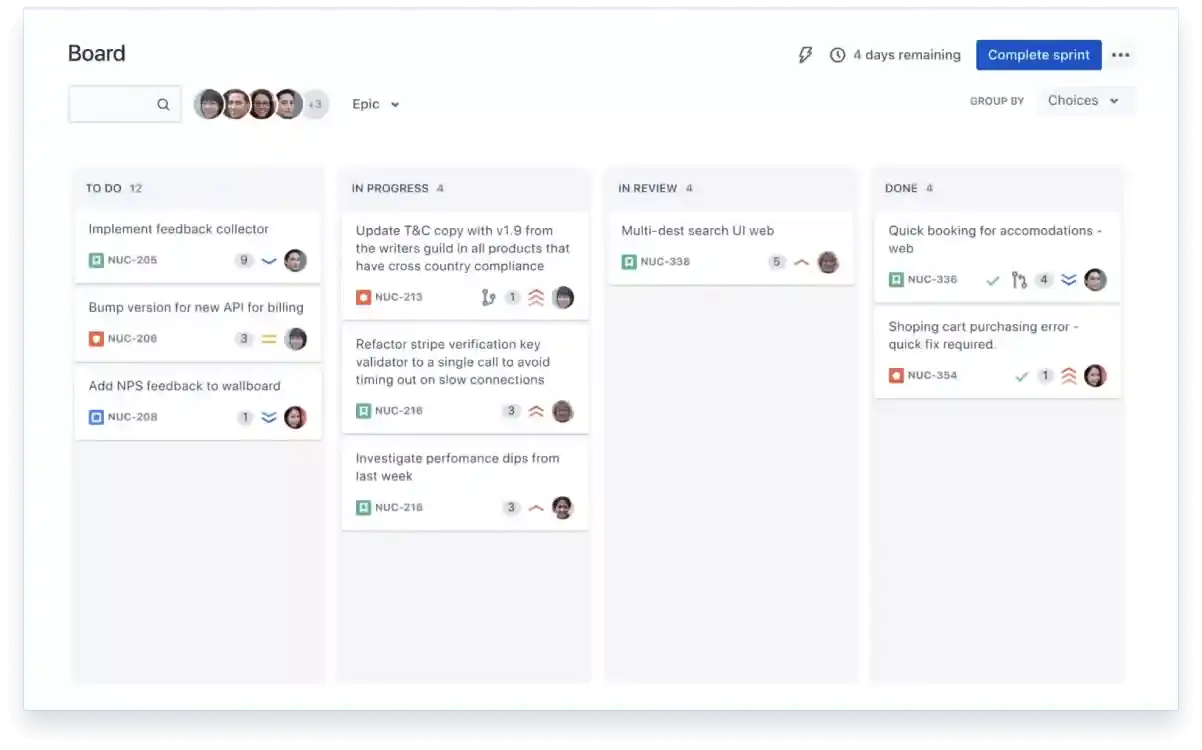
Features:
Jira, developed by Atlassian, is a favorite among software development teams. It offers extensive features like customizable workflows, advanced reporting, and real-time collaboration. Jira’s agile capabilities, including Scrum and Kanban boards, make it ideal for managing software development projects. Additionally, teams can streamline issue tracking with Jira templates for tickets, making it easier to standardize processes and improve efficiency.
Pricing:
Jira’s pricing starts at $10 per user per month for small teams, with discounts available for larger teams.
Suitability:
Jira is perfect for teams that follow Agile methodologies and need a tool that can be customized to fit their workflows.
Pros:
– Highly customizable workflows
– Robust reporting and analytics
– Robust integration capabilities
– Excellent for Agile project management
Cons:
– Can be overwhelming for new users
– Higher cost for larger teams
– Requires training to utilize fully
2. Trello
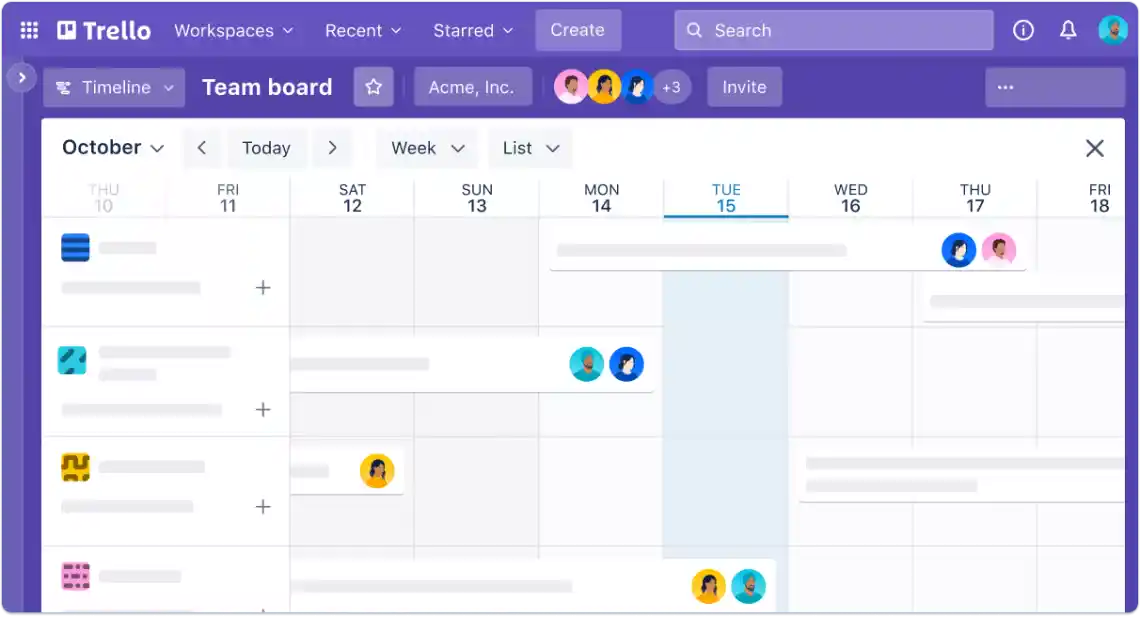
Features:
Trello is famous for its easy-to-use and visual method of managing projects. It uses boards, lists, and cards to help teams organize tasks and projects. Trello is highly flexible and can be adapted to various types of projects, making it a popular choice for many software development teams.
Pricing:
Trello offers a free version with basic features. The Business Class plan is priced at $10 per user per month, and the Enterprise plan is available for larger organizations.
Suitability:
Trello is ideal for small to medium-sized teams looking for an easy-to-use and visually appealing project management tool.
Pros:
– Simple and intuitive interface
– Flexible and adaptable to different project types
– Free version available
Cons:
– Limited advanced features
– Can become cluttered with large projects
– Less suitable for complex projects
3. Asana
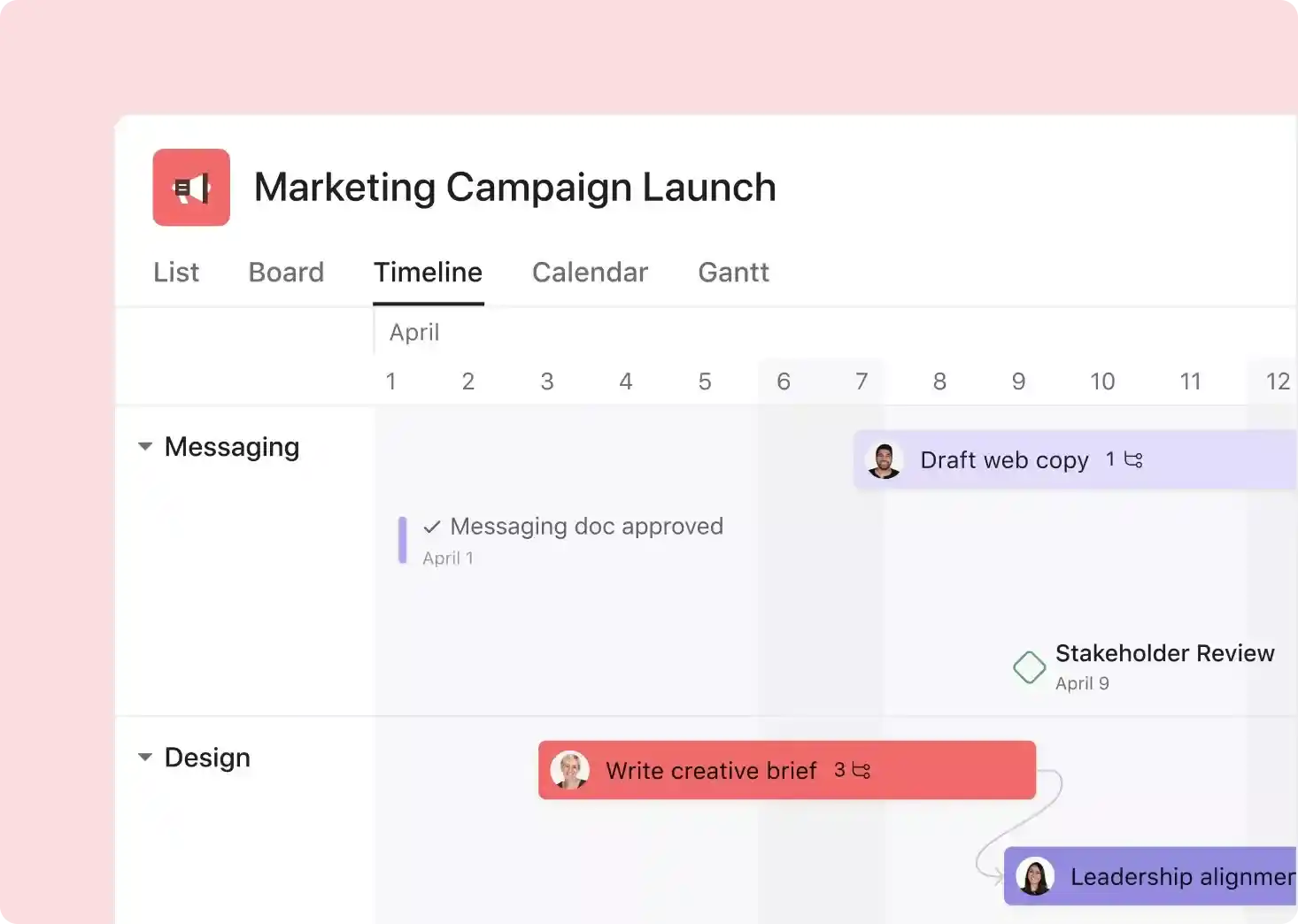
Features:
Asana is a powerful project management tool that offers a wide range of features, including task management, project timelines, and collaboration tools. Asana’s user-friendly interface makes it easy for teams to track their work and stay organized.
Pricing:
Asana offers a free basic plan. The Premium plan starts at $10.99 per user per month, and the Business plan is priced at $24.99 per user per month.
Suitability:
Asana is suitable for teams of all sizes that need a comprehensive project management solution with a focus on task and workflow management.
Pros:
– User-friendly interface
– Comprehensive feature set
– Excellent for task and workflow management
Cons:
– Can be expensive for larger teams
– Some advanced features are only available in higher plans
– Limited customization options
4. Monday.com
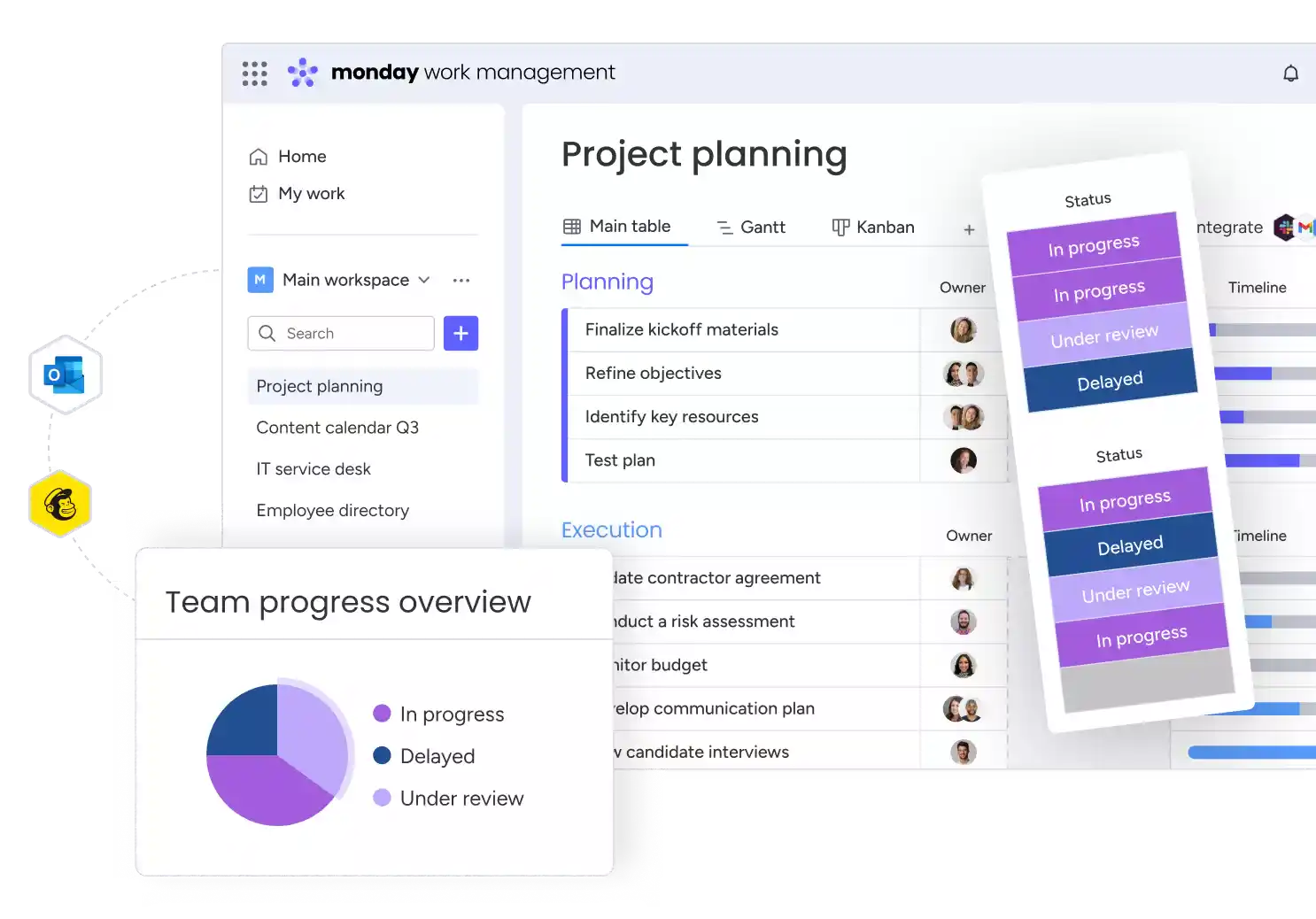
Features:
Monday.com is a versatile project management tool that offers features like customizable workflows, visual project tracking, and team collaboration software. Its visual approach makes it easy for teams to see the status of their projects at a glance.
Pricing:
Monday.com pricing starts at $8 per user per month for the Basic plan, with Standard and Pro plans available at higher price points.
Suitability:
Monday.com is great for teams that need a highly visual and customizable project management tool that can adapt to various workflows.
Pros:
– Highly visual and intuitive interface
– Customizable workflows
– Good for team collaboration
Cons:
– Can be pricey for larger teams
– Some features require higher-tier plans
– Learning curve for advanced features
5. ClickUp
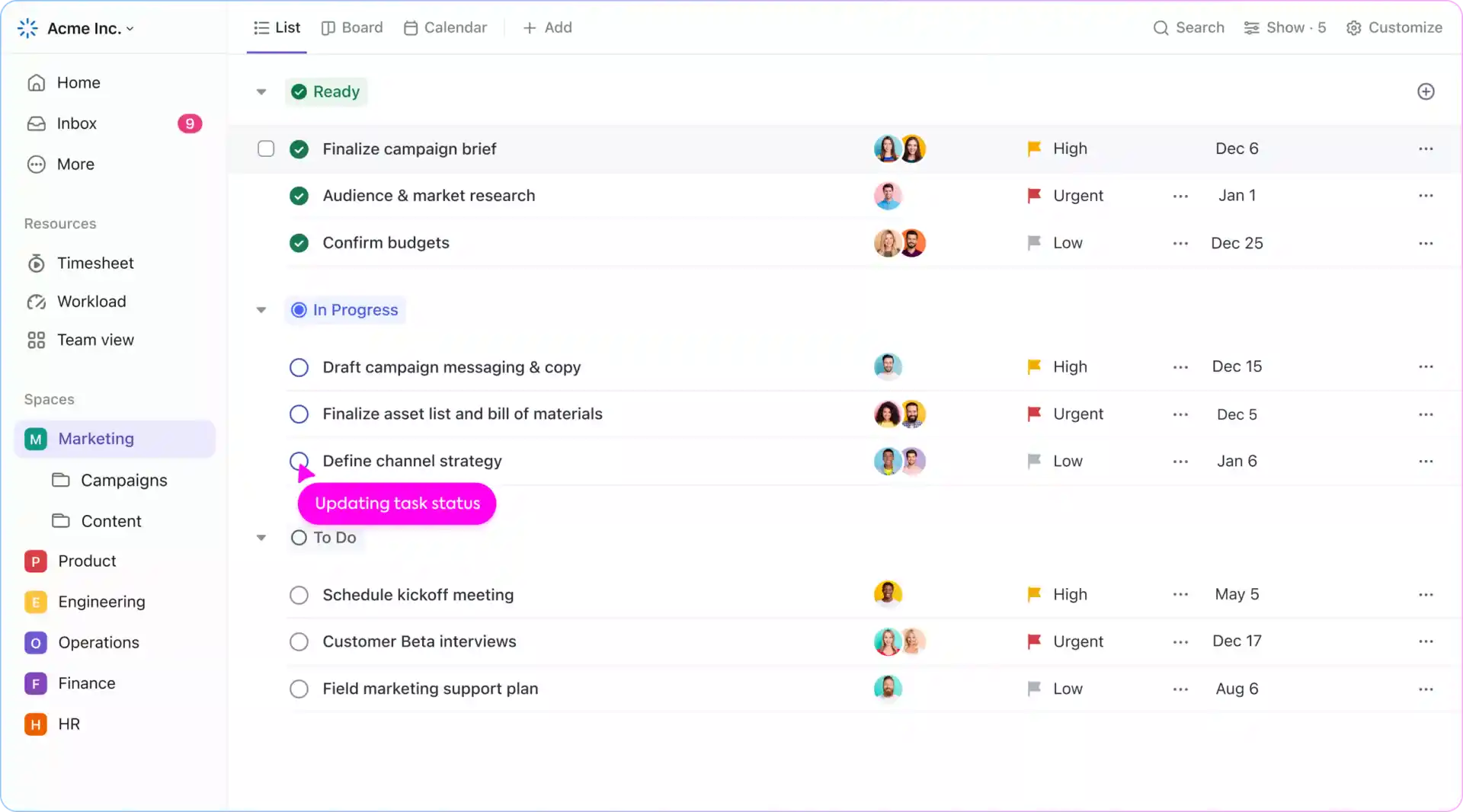
Features:
ClickUp is an all-in-one project management tool that offers task management, time tracking, goal setting, and collaboration features. It is highly customizable and integrates with many other tools, making it a popular choice for software development teams.
Pricing:
ClickUp offers a free version with basic features. The Unlimited plan starts at $5 per user per month, and the Business plan is priced at $12 per user per month.
Suitability:
ClickUp is ideal for teams looking for an all-in-one project management solution with extensive customization options.
Pros:
– Highly customizable
– All-in-one solution
– Affordable pricing
Cons:
– Can be overwhelming for new users
– Some features are only available in higher-tier plans
– Occasional performance issues
6. Basecamp
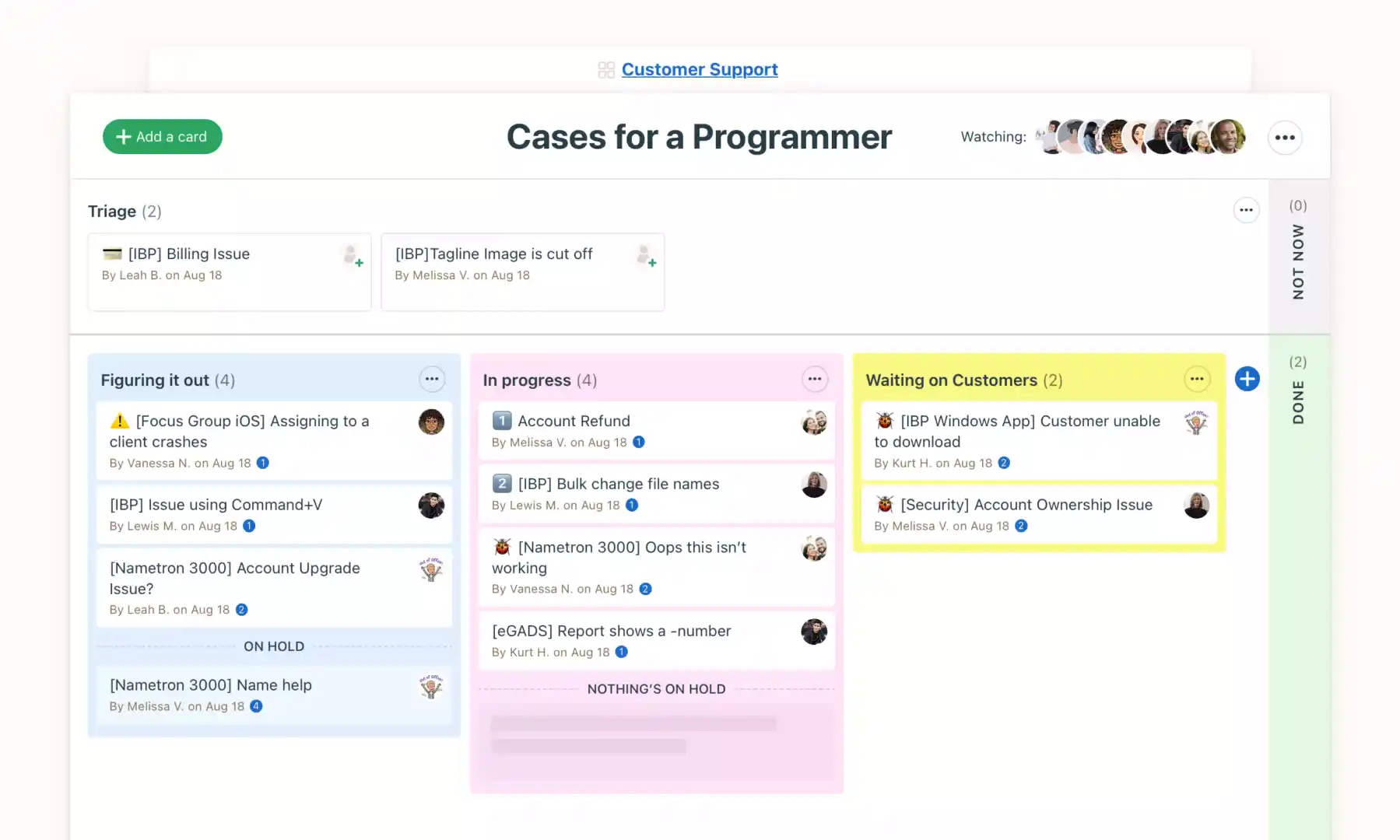
Features:
Basecamp is a project management and team collaboration tool that offers features like to-do lists, document sharing, and real-time messaging. It is known for its simplicity and ease of use, making it a popular choice for many teams.
Pricing:
Basecamp offers a flat pricing model at $99 per month for unlimited users and projects.
Suitability:
Basecamp is perfect for teams that need a straightforward project management tool with strong collaboration features. However, weighing the pros and cons of Basecamp can highlight if it meets all your needs.
Pros:
– Simple and easy to use
– Flat pricing model
– Strong collaboration features
Cons:
– Limited advanced features
– Not ideal for complex projects
– No free version
7. Airtable
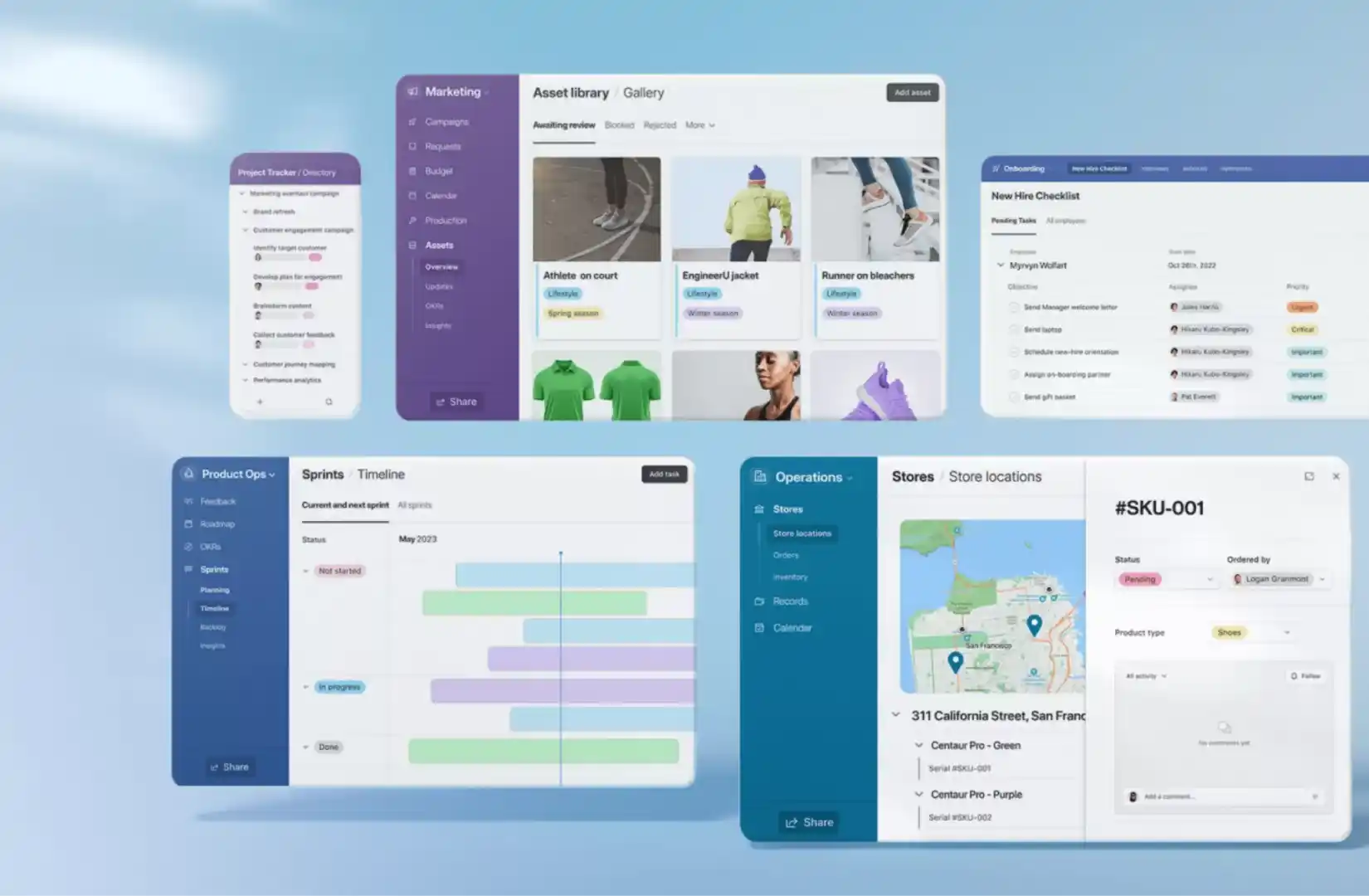
Features:
Airtable merges the ease of a spreadsheet with the strength of a database. It offers features like customizable fields, collaboration tools, and integrations with various apps. Airtable is highly flexible and can be used for a wide range of projects.
Pricing:
Airtable offers a free version with basic features. The Plus plan starts at $10 per user per month, and the Pro plan is priced at $20 per user per month.
Suitability:
Airtable is ideal for teams that need a versatile and highly customizable project management tool.
Pros:
– Combines spreadsheet simplicity with database power
– Highly customizable
– Good for collaboration
Cons:
– Can be complex to set up
– Some advanced features require higher plans
– Limited free version
8. Smartsheet
Features:
Smartsheet is a project management tool that combines the ease of use of a spreadsheet with advanced project management features. It offers task management, collaboration tools, and real-time reporting, making it suitable for a variety of projects. However, if you’re exploring Smartsheet alternatives, there are several other tools available that cater to different project management needs and preferences.
Pricing:
Smartsheet pricing starts at $14 per user per month for the Individual plan. The cost for each user per month in the Business plan is $25.
Suitability:
Smartsheet is perfect for teams that prefer a spreadsheet-like interface but need advanced project management features.
Pros:
– Familiar spreadsheet-like interface
– Advanced project management features
– Good for collaboration
Cons:
– Can be expensive for larger teams
– Limited customization options
– Steeper learning curve for advanced features
9. Microsoft Project
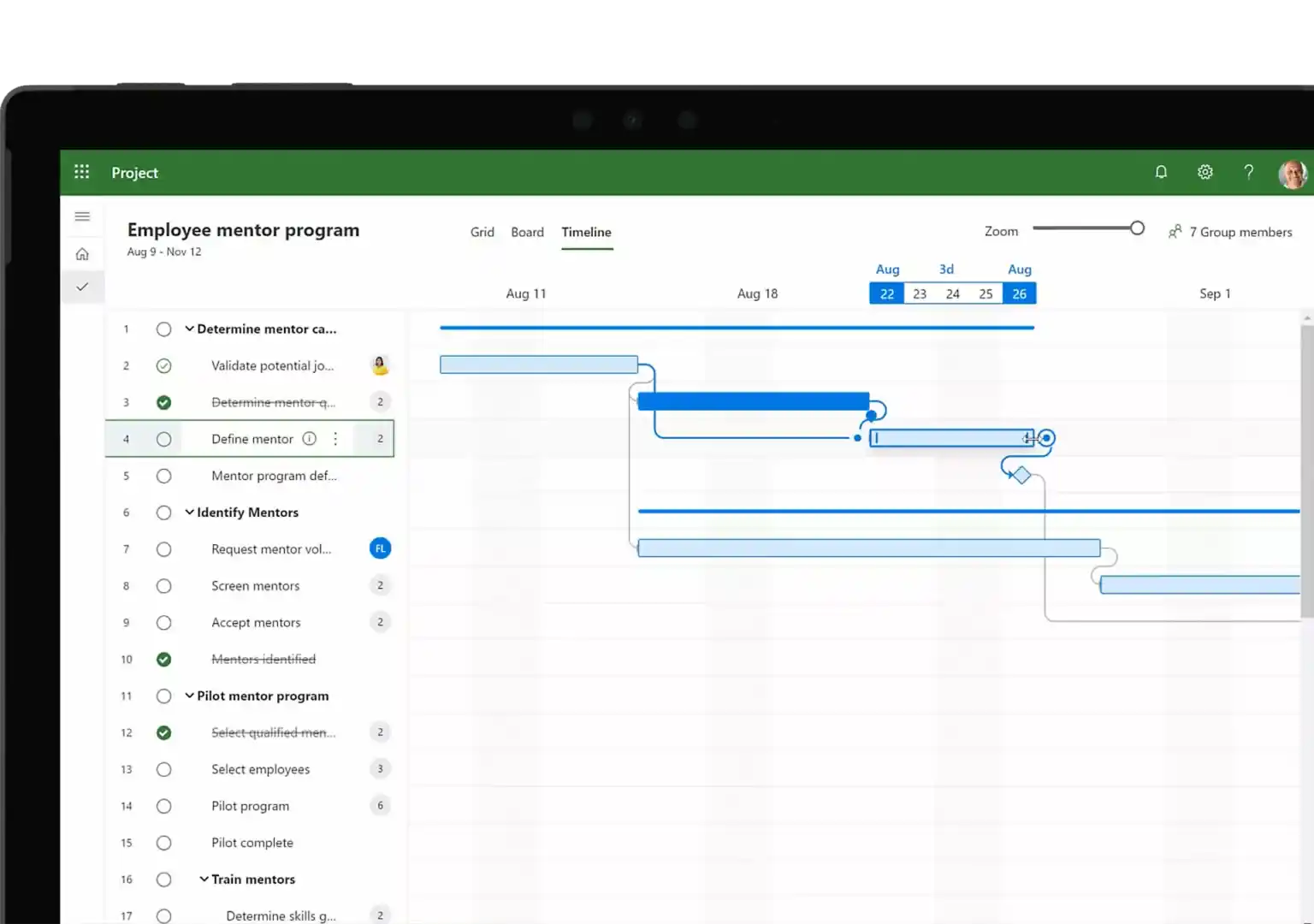
Features:
Microsoft Project is a powerful project management tool that offers features like task scheduling, resource management, and project tracking. It integrates seamlessly with other Microsoft tools, making it a popular choice for teams already using Microsoft products.
Pricing:
Microsoft Project pricing starts at $10 per user per month for Project Plan 1. Higher-tier plans are available at higher price points.
Suitability:
Microsoft Project is ideal for teams that need a robust project management tool with advanced features and integration with Microsoft products.
Pros:
– Powerful feature set
– Seamless integration with Microsoft tools
– Good for complex projects
Cons:
– Can be expensive
– Steeper learning curve
– Overwhelming for small teams
10. Teamwork
Features:
Teamwork is a project management tool that offers features like task management, time tracking, and team collaboration. It is known for its ease of use and strong customer support, making it a popular choice for many teams.
Pricing:
Teamwork pricing starts at $10 per user per month for the Pro plan. The Premium plan is available at $18 per user per month.
Suitability:
Teamwork is perfect for teams that need a user-friendly project management tool with strong collaboration features.
Pros:
– Easy to use
– Strong customer support
– Good for team collaboration
Cons:
– Limited advanced features
– Can be expensive for larger teams
– Some features require higher-tier plans
Comparison and Analysis
Here’s a table to compare the top 10 project management tools for software development across key features:
| Simple Collaboration | Features | Pricing (Starting) | Ease of Use | Collaboration | Customization | Suitable for |
|---|---|---|---|---|---|---|
| Jira | Customizable workflows, advanced reporting | $10/user/month | Moderate | Excellent | High | Agile teams |
| Trello | Boards, lists, cards | Free/$10/user/month | High | Good | Moderate | Small-medium teams |
| Asana | Task management, project timelines | Free/$10.99/user/month | High | Excellent | Limited | All sizes |
| Monday.com | Visual project tracking, customizable workflows | $8/user/month | High | Excellent | High | Various workflows |
| ClickUp | Task management, time tracking | Free/$5/user/month | Moderate | Good | High | Customizable needs |
| Basecamp | To-do lists, document sharing | $99/month (unlimited users) | High | Excellent | Limited | Simple collaboration |
| Airtable | Customizable fields, integrations | Free/$10/user/month | Moderate | Good | High | Versatile projects |
| Smartsheet | Task management, real-time reporting | $14/user/month | Moderate | Good | Limited | Spreadsheet users |
| Microsoft Project | Task scheduling, resource management | $10/user/month | Moderate | Good | High | Complex projects |
| Teamwork | Task management, time tracking | $10/user/month | High | Excellent | Limited | Team collaboration |
Additional Considerations:
- Team Size & Budget: Consider scalability and pricing structures that align with your team’s growth and financial constraints.
- Technical Expertise: Choose a tool with an interface that caters to both developers and non-technical team members.
- Specific Needs: Evaluate your core requirements. Do you prioritize agile methodologies, robust issue tracking, or real-time communication?
Before choosing the right tool, you need the perfect project management strategy. By considering these factors and the table above, you can make an informed decision and select the project management tool that best empowers your software development team.
Conclusion
Choosing the right project management tool can significantly impact your software development team’s efficiency and success. Whether you need a simple, visual tool like Trello or a robust, feature-rich platform like Jira, there’s a project management tool out there that fits your needs. By considering factors like features, pricing, ease of use, and scalability, you can make an informed decision that will help your team stay organized and productive. Each of the tools mentioned has its unique strengths and can cater to different project management needs. The key is to match the tool’s capabilities with your team’s requirements and workflow.
FAQ
What is a project management tool?
A project management tool is software that helps teams plan, execute, and track projects from start to finish. These tools offer various features like task management, scheduling, collaboration, and reporting to ensure projects are completed on time and within budget.
Why are project management tools important for software development?
Project management tools are crucial for software development as they help teams manage complex projects, track progress, collaborate efficiently, and meet deadlines. These tools also ensure transparency, accountability, and effective communication among team members.
How do I choose the right project management tool for my team?
When choosing a project management tool, consider your team’s specific needs, such as task management, collaboration, and reporting features. Evaluate the tool’s scalability, integration capabilities, ease of use, and pricing. It’s also helpful to take advantage of free trials to see which tool fits best with your team’s workflow.
What are the key features to look for in a project management tool?
Key features to look for include task management, project scheduling, collaboration tools, file sharing, time tracking, reporting, and integration capabilities with other software. The tool should also be user-friendly and scalable to accommodate your team’s growth.
Can small teams benefit from using project management tools?
Absolutely. Project management tools can help small teams stay organized, improve communication, and manage their workload more efficiently. Many tools offer free or affordable plans that are perfect for small teams.
Are there free project management tools available?
Yes, several project management tools offer free versions with basic features. Trello, ClickUp, and Asana, for example, provide free plans that can be sufficient for small teams or startups. However, as your team grows or your project needs become more complex, you might need to upgrade to a paid plan.
How do project management tools support Agile methodologies?
Many project management tools support Agile methodologies by offering features like Scrum and Kanban boards, sprint planning, and backlog management. Tools like Jira, ClickUp, and Monday.com are specifically designed to support Agile practices, making it easier for teams to implement and manage Agile workflows.
What are the benefits of using a customizable project management tool?
Customizable project management tools allow teams to tailor workflows, dashboards, and reports to fit their specific needs. This flexibility can improve efficiency, enhance user adoption, and ensure the tool aligns with the team’s processes and goals.
How can project management tools improve collaboration within a team?
Project management tools enhance collaboration by providing a centralized platform where team members can communicate, share files, and track progress in real-time. Features like chat, comments, and notifications ensure everyone stays informed and can collaborate effectively, regardless of their location.
What is the cost range for project management tools?
The cost of project management tools varies widely. Free versions are available with basic features, while paid plans can range from $5 to $50 per user per month, depending on the features and capabilities offered. Enterprise plans with advanced features and higher user limits can be more expensive.